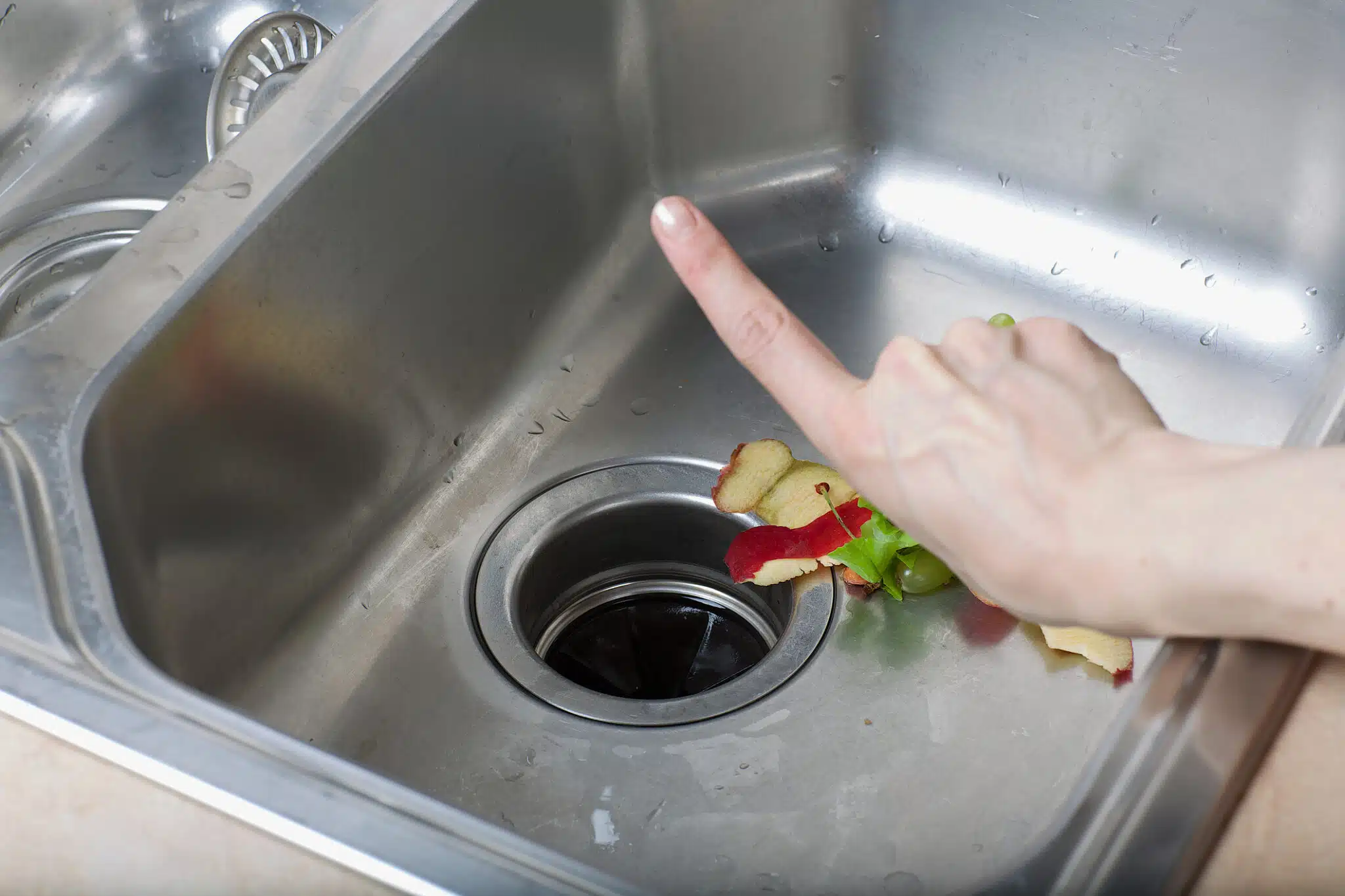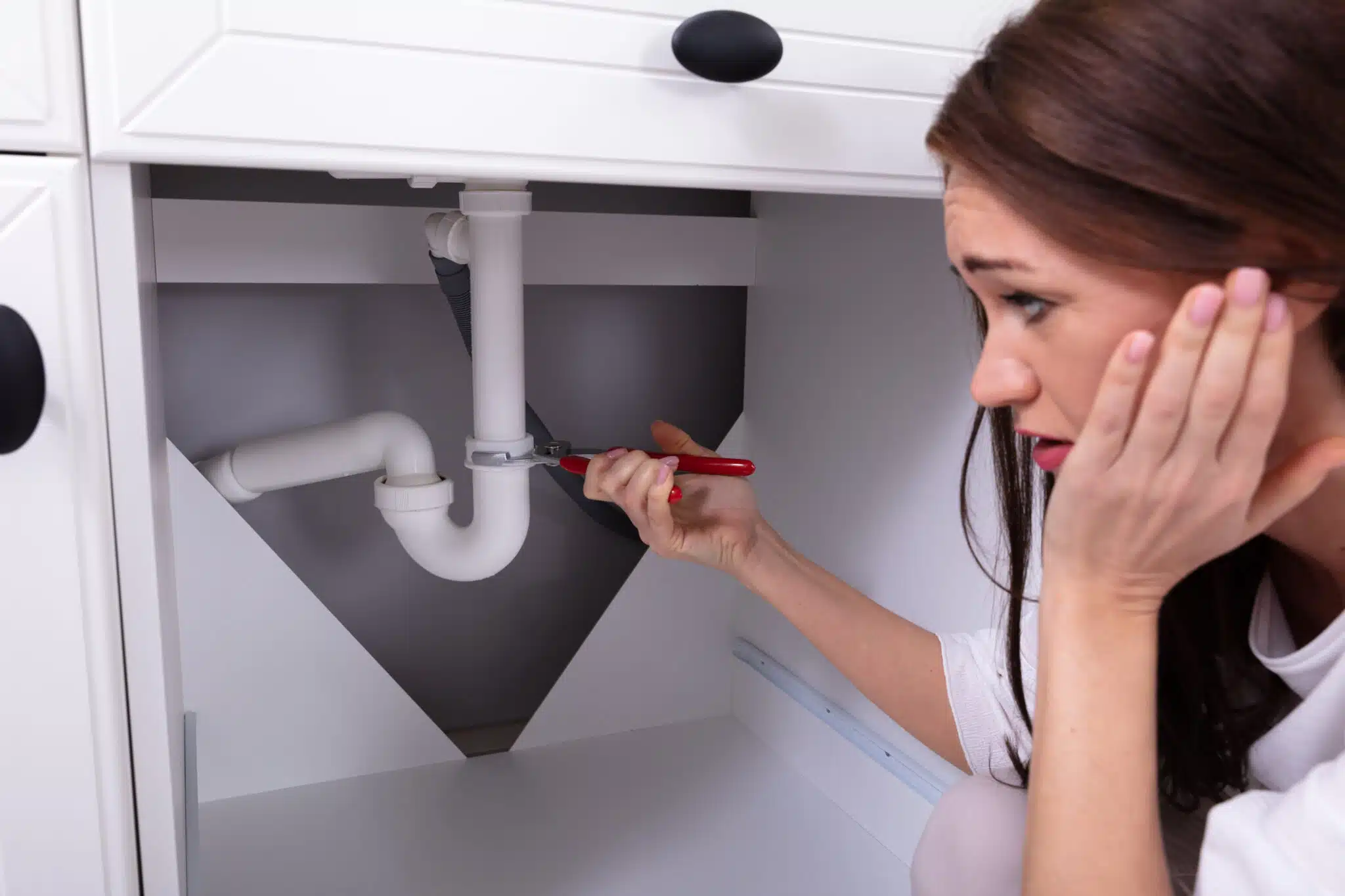In Lancaster, PA, and York, PA, understanding plumbing noise reduction is key to restoring serenity in their living spaces.
Fortunately, there are effective strategies for plumbing noise reduction that don’t require a complete overhaul of your home’s plumbing system. Simple adjustments and fixes can make a significant difference in reducing unwanted sounds. From insulating pipes to securing loose fittings, the solutions are within reach. Knowing where to start is the first step towards a quieter home.
Benjamin Franklin Plumbing, based in Lancaster, PA, specializes in addressing these concerns with expertise and precision. Their experienced professionals are well-versed in the nuances of plumbing noise reduction. They offer tailored solutions that not only minimize noise but also enhance the overall efficiency and longevity of your plumbing system. Their approach ensures that each intervention is both effective and sustainable.
By taking proactive steps towards plumbing noise reduction, you can transform your home into the peaceful haven it’s meant to be. The benefits extend beyond just noise reduction, they include improved plumbing health and potentially even savings on repairs down the line. For homeowners in Lancaster and York, PA, embarking on this journey towards a quieter home is a worthwhile investment in comfort and well-being.
Understanding the Causes of Plumbing Noise
To understand how to reduce plumbing noise, it’s essential to first identify its causes. In many homes in Lancaster, PA, common culprits include high water pressure and loose pipes. High water pressure forces water through pipes more rapidly, increasing turbulence and the potential for noise. Meanwhile, pipes that aren’t securely fastened can vibrate against walls or floors, creating a racket with every use.
Another source of noise is the phenomenon known as water hammer. This occurs when a faucet or valve suddenly stops water flow, causing a shock wave through the pipes. Residents in York, PA, might hear this as a loud bang. Installing water hammer arrestors can mitigate this issue, absorbing the shock and reducing the sound.
Aging plumbing systems also contribute to the problem. Over time, corrosion and sediment build-up can restrict water flow, leading to unusual noises. Regular maintenance checks can help identify these issues early on. By addressing them promptly, homeowners can prevent minor nuisances from evolving into major disruptions.
Finally, ensuring your plumbing system is properly insulated can significantly impact noise levels. Insulation not only minimizes the sound of water flowing through pipes but also helps prevent them from freezing during cold spells. This dual benefit makes it a valuable investment for any homeowner looking to achieve plumbing noise reduction. By tackling these common causes, residents can enjoy a quieter, more serene home environment.

Plumbing Noise Reduction: Identifying Problem Areas
Identifying problem areas is crucial for effective plumbing noise reduction. In Lancaster, PA, a common issue is the lack of proper pipe insulation. This can lead to not only noise but also increased risk of pipes freezing in winter. Adding insulation around pipes, especially in unheated areas, can quiet noises and offer protection against cold temperatures.
In York, PA, another area to consider is the condition of appliance connections. Washing machines and dishwashers often contribute to plumbing noise through loose fittings. Checking and tightening these connections can significantly reduce disruptive sounds. This simple step ensures appliances operate more quietly and efficiently.
Regular maintenance is also key to minimizing plumbing noise. Over time, washers in faucets and valves can wear out, leading to irritating drips and whistles. Replacing these components is a straightforward fix that can silence bothersome noises. It also prevents water waste, contributing to a more sustainable home.
Lastly, installing shock absorbers can address the issue of water hammer, a common problem in both Lancaster and York, PA. These devices absorb the shock that occurs when water flow is suddenly stopped. By mitigating this impact, they prevent loud banging noises and protect your pipes from damage. This measure, along with the others mentioned, can lead to a significant reduction in plumbing noise.
When to Call a Professional for Plumbing Noise
While DIY methods for plumbing noise reduction can be effective, there are times when the expertise of a professional plumber becomes necessary. In Lancaster, PA, homeowners might encounter complex issues like deep-seated pipe corrosion or advanced water hammer effects that DIY fixes can’t address. A professional plumber has the tools and knowledge to diagnose these problems accurately. They can provide solutions that not only reduce noise but also safeguard your home’s plumbing system against future issues.
For residents in York, PA, attempting to fix persistent plumbing noises without the proper expertise can lead to further complications. If after applying DIY solutions the noises persist, it’s a clear sign to call in a professional. They can perform a comprehensive assessment to identify the root cause of the noise. This ensures that the correct measures are taken, preventing unnecessary adjustments that might not solve the problem.
Professionals also have access to high-quality materials and advanced technologies for plumbing noise reduction that might not be available to the average homeowner. They can install specialized insulation or noise-dampening clamps that are more effective than standard solutions. This level of intervention can make a significant difference in reducing noise levels, offering a lasting resolution to the issue.
Lastly, enlisting the help of a professional can be a more cost-effective solution in the long run. In Lancaster and York, PA, plumbers familiar with local plumbing systems can provide targeted interventions that prevent the recurrence of noise issues. This not only saves homeowners from repeated expenses on DIY fixes but also ensures that their plumbing system remains in optimal condition, contributing to the overall tranquility of their home.
Choosing the Right Materials for Noise Reduction
Choosing the right materials is essential for effective plumbing noise reduction. In Lancaster, PA, homeowners can benefit from selecting pipes and insulation designed to minimize noise. For instance, using cast iron or specially designed plastic pipes can significantly reduce the sound of water traveling through them. Additionally, opting for thicker insulation materials can dampen noise, ensuring a quieter home environment.
In York, PA, it’s also important to consider the type of fixtures and fittings used in plumbing installations. High-quality fixtures that are designed to operate quietly can make a noticeable difference in reducing noise. These include faucets and valves that are engineered to minimize turbulence as water flows through them. By prioritizing these options, residents can achieve a more peaceful living space.
The role of professional installation cannot be overstated when it comes to plumbing noise reduction. Expert plumbers understand how to correctly install pipes and insulation to maximize noise dampening. Their knowledge ensures that materials are not only chosen for their noise-reducing properties but are also installed in a way that prevents vibrations and rattles, common sources of plumbing noise.
Finally, regular maintenance plays a crucial role in sustaining a quiet plumbing system. This includes routine checks and replacements of parts that are prone to wear and tear. For homeowners in both Lancaster and York, PA, maintaining their plumbing with the right materials and professional guidance can prolong the life of their system while keeping noise levels to a minimum.
The Role of Water Pressure in Plumbing Noise
Understanding the role of water pressure in plumbing noise is crucial for homeowners in Lancaster, PA. When water pressure is too high, it forces water through pipes at a speed that can lead to increased noise. Installing a pressure regulator can effectively manage this, resulting in a quieter home environment. This step is not only simple but can significantly contribute to plumbing noise reduction.
In York, PA, residents may notice that adjusting water pressure can also prevent potential damage to their plumbing system. High pressure can strain pipes and fixtures, leading to leaks or bursts that cause more than just noise issues. By maintaining an optimal water pressure level, homeowners safeguard their plumbing while enhancing the tranquility of their living space. This proactive measure ensures the longevity and efficiency of the plumbing system.
Another aspect to consider is the impact of water pressure on appliances. Dishwashers and washing machines, for instance, can contribute to plumbing noise if they’re operating under too high pressure. By adjusting the pressure, these appliances run more smoothly and quietly, further contributing to the overall goal of plumbing noise reduction. It’s a simple adjustment that can make a noticeable difference in reducing background noise from household appliances.
Lastly, consulting with a professional plumber can provide valuable insights into the specific needs of your home’s plumbing system. They can recommend the best pressure level for noise reduction and overall plumbing health. For residents in both Lancaster and York, PA, this expert advice can be the key to achieving a peaceful home environment. Taking this step ensures that the measures taken are both effective and tailored to the unique aspects of your plumbing system.

Preventative Maintenance for Reducing Plumbing Noise
Preventative maintenance is key to ensuring your plumbing system remains quiet and efficient. Regular checks can help identify issues like loose fittings or signs of wear before they start making noise. In Lancaster, PA, homeowners can schedule annual inspections with professionals who specialize in plumbing noise reduction. This proactive approach not only keeps your home peaceful but also prevents minor problems from becoming major headaches.
Addressing potential noise sources, such as the water heater or sump pump, is also crucial. In York, PA, ensuring these appliances are well-maintained and operating correctly can significantly reduce background noise. For instance, sediment buildup in a water heater can cause popping and cracking sounds, but flushing the tank annually can prevent this. Likewise, checking the sump pump for debris and ensuring it’s properly secured can eliminate unwanted sounds.
Another aspect of preventative maintenance involves treating your plumbing system gently. Avoiding the disposal of hard-to-grind waste in garbage disposals and not flushing anything other than toilet paper can prevent blockages and the associated noises. Educating everyone in the household on what shouldn’t go down the drains can help maintain a quieter plumbing system. Simple habits like these can make a big difference in the overall sound level of your home’s plumbing.
Finally, upgrading older plumbing components can be a form of preventative maintenance that leads to plumbing noise reduction. Outdated fixtures and pipes are more prone to making noise, so replacing them with modern, quieter alternatives can be beneficial. Whether you’re in Lancaster, PA, or York, PA, consulting with a plumbing expert on the best upgrades for noise reduction can enhance the tranquility of your home. This step not only reduces noise but also improves the functionality and efficiency of your plumbing system.
Innovative Solutions for Plumbing Noise Reduction
Exploring innovative solutions for plumbing noise reduction can significantly enhance the serenity of your home. In Lancaster, PA, homeowners are turning to advanced technologies, such as acoustic pipe insulation, which absorbs sound waves more efficiently than traditional materials. This innovation not only reduces the noise of water flowing through pipes but also contributes to a more peaceful living environment. By investing in these modern solutions, residents can experience a noticeable decrease in plumbing-related disturbances.
Another cutting-edge approach involves the installation of anti-vibration pipe clamps in homes in York, PA. These clamps secure pipes firmly, minimizing the vibrations that cause annoying sounds. They are particularly effective in areas where pipes run close to living spaces, ensuring that water movement is heard less. This method is a testament to how small adjustments in the plumbing system can lead to significant improvements in noise reduction.
Smart water monitors offer a dual benefit for plumbing noise reduction, providing real-time data on water pressure and flow. By alerting homeowners to changes that could increase noise levels, such as a rise in water pressure, these devices allow for immediate adjustments. Residents can maintain optimal pressure levels, preventing the high-speed water flow that contributes to pipe noise. This proactive measure not only keeps the plumbing system quiet but also helps in conserving water.
Lastly, embracing quieter appliances plays a crucial role in the overall strategy for reducing plumbing noise. Modern dishwashers and washing machines are designed to operate with less noise, contributing to the tranquility of homes. By choosing appliances that emphasize quiet operation, homeowners can tackle the issue of plumbing noise from multiple angles. Together, these innovative solutions represent a comprehensive approach to achieving a quieter, more peaceful home.
Frequently Asked Questions
What causes plumbing noise in homes?
Plumbing noise in homes often comes from water pressure that’s too high or pipes that aren’t securely fastened. Loose fittings can cause pipes to rattle, creating unsettling sounds. Air in the pipes might lead to a hammering or vibrating noise. Reducing these noises improves your home’s tranquility and comfort.
How can I identify plumbing noise sources?
To identify plumbing noise sources, start by listening for when the noise occurs. If it’s consistent, check for loose pipes or fittings. A sudden noise might indicate air in the pipes. Enlisting a professional for plumbing noise reduction can also pinpoint and solve the issue effectively.
What are the best materials for plumbing noise reduction?
For plumbing noise reduction, certain materials stand out. Insulating pipes with foam or rubber sleeves can significantly dampen sound. Cast iron pipes, though heavier, are excellent for reducing noise due to their density. Using thicker pipe materials also helps in minimizing vibrations and sound transmission. These options provide effective solutions for a quieter home environment.
Can DIY methods help with plumbing noise reduction?
DIY methods can indeed assist in reducing plumbing noise in your home. Simple fixes like tightening loose fittings can make a big difference. Adding insulation around pipes is another effective strategy. However, for complex issues, consulting a professional ensures the best results in plumbing noise reduction.
How often should plumbing systems be checked for noise?
To maintain a quiet and serene home, inspect your plumbing system for noise annually. Regular checks help catch issues like loose fittings before they worsen. If you notice an increase in noise, it’s wise to schedule an inspection sooner. This proactive approach ensures your plumbing remains in top condition, contributing to overall plumbing noise reduction.









